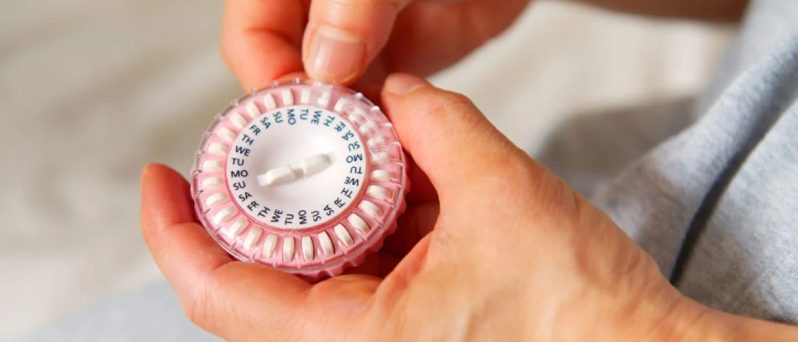One thing we wish we knew before we started our periods is that there is a myriad of reasons why it might be late. Oh, the time we would’ve saved by not panicking about potentially being pregnant! From peak stress levels to perimenopause, read on to find out what can delay your period and what to do when you miss one.
How late is a late period?
Typically, a period is considered late when it’s been 30 days since you finished your last period. This is different for everybody of course, as it depends entirely on what is normal for you.
The best way of working out your normal is by using a period tracker app to keep track of how often it comes and how heavy and painful it is each time.
What can delay your period?
-
Birth Control
Taking birth control certainly has its perks: from decreasing period pain and preventing pregnancy to regulating your period! However, birth control side effects can be temperamental and sometimes have the opposite effect on your menstrual cycle: irregulating/skipping your period. If you’ve just started taking a new contraceptive or are coming off one, it can take up to six months for your cycle to return to normal.
Some birth control methods like the implant or IUD might stop you getting your period entirely.
-
Can stress make your period late?
Yes! If your period is late, it might be due to your stress levels. When you’re stressed, your endocrine system increases hormones in your body. These hormones suppress functions that aren’t necessary for your body to function when trying to escape a stressful situation (fight-or-flight mode). If your body stays in that mode, your hormones may stop ovulation and therefore delay your period.
Your menstrual cycle may end up being longer, shorter, or you might miss a period entirely due to stress. Aim to avoid situations that cause this, exercise regularly, and ensure you get the 7-8 hours of sleep your body needs to help ease stress and regulate your cycle.
If you experience chronic stress, you might want to speak to a healthcare professional about what can help you.
-
Weight fluctuations or increased exercise intensity
While regular exercise and a balanced diet is great for regulating your cycle, overexercising and losing a significant amount of weight does the opposite. Having a low body-fat ratio can change your reproductive hormone levels – sometimes to a point where you are no longer ovulating or menstruating.
And just like significant weight loss can change your cycle, so can excessive weight gain.
If you’ve missed a period due to either of these, check in with a dietitian or doctor about how you can regulate your cycle again.
-
Perimenopause or early menopause
Perimenopause is the time between having periods and entering full menopause, and missed periods are often the first sign you’re experiencing it. Your body slows down its production of oestrogen, which means that your cycle could get longer, you could have shorter periods, or it may change in heaviness.
If you’re under 40 years old, late or missed periods may be a sign of early menopause. This is when your ovaries begin to decline and stop producing enough oestrogen. Other symptoms to look out for in early menopause are hot flashes, night sweats, and disturbed sleep.
-
PCOS and late periods
People who experience PCOS often ovulate infrequently or not at all. This means that periods are either irregular or absent. Obesity and a late period could be a sign of a PCOS too.
There are also other symptoms present when you experience PCOS such as, difficulty conceiving, hair loss, and bloating. If you think you might have PCOS, it’s worth checking in with your healthcare professional to make sure you get properly diagnosed.
-
Thyroid disease
Other conditions such as thyroid disease could also be the cause of a delayed period. A thyroid gland can be found in your neck and it produces hormones to help control much of what your body is capable of, including ovulation. People with periods who have thyroid disease may not ovulate due to hormone imbalances, which will irregulate their cycle.
-
You might be pregnant
If none of the above seem to fit with what you’re experiencing, and you’ve had heterosexual sex – unprotected or even protected – a late period might mean that you’re pregnant. Check out the best time to take a pregnancy test.
Natracare
Period Products
Discover Now
What to do when your period is late
It’s important to be aware of what is normal for you so that you can spot atypical changes to your period. If your period is much later than normal and none of these external factors are playing a part, then make sure you check in with a doctor to get some answers or find a solution.












